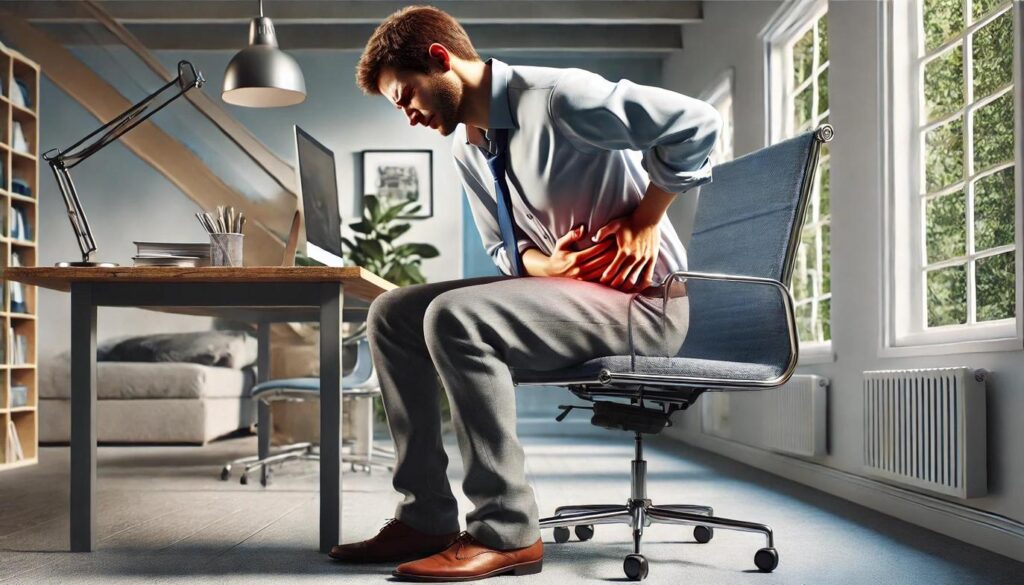Hemorrhoids, commonly referred to as piles, are swollen blood vessels located in the lower rectum or anus. This condition can lead not only to discomfort but also to significant disruptions in digestive health. Many individuals suffer from painful symptoms associated with hemorrhoids without fully comprehending the connection between these symptoms and their overall digestive function. In this section, we will define hemorrhoids, discuss their causes, and explore how they can affect your daily life and well-being. Understanding these aspects is crucial for effectively managing symptoms and enhancing your quality of life.
By gaining insight into the nature of hemorrhoids, including their role in constipation and bowel irregularities, you can take proactive steps toward improving your digestive health. In this article, we will dissect the various implications of hemorrhoids, highlighting lifestyle changes and treatment options that can provide relief and support your overall well-being. Whether you are seeking to understand this condition better or looking for solutions to manage its effects, this comprehensive introduction sets the stage for your journey toward enhanced digestive health.
Understanding Hemorrhoids
It occurs when veins in the anus or rectum swell due to increased pressure. This results from straining during bowel movements, constipation, or other factors. Address this issue through treatment for hemorrhoid bowel discomfort, as untreated piles can lead to serious complications. Common symptoms of hemorrhoids include itching, swelling, and, in more severe cases, bleeding.
One significant impact on digestive health occurs during bowel movements. The pain caused by swollen veins can make it difficult to pass stool comfortably, resulting in sharp or aching sensations. This discomfort often leads people to avoid regular bowel movements, which worsens the problem and can lead to constipation. The fear of pain or discomfort becomes a cycle that exacerbates hemorrhoid symptoms and complicates digestive health.
The Link Between Constipation and Hemorrhoid Discomfort
Constipation often both causes and worsens hemorrhoids. Straining is a direct result of hard stools, which creates increased pressure on the veins in the anal area. This strain can lead to or exacerbate hemorrhoids, causing additional pain, swelling, or bleeding. This can trigger a vicious cycle where individuals continue to strain, worsening the hemorrhoids.
In individuals with chronic constipation, hemorrhoids become a persistent problem. The hard stool can cause further irritation to the swollen veins and increase the risk of bleeding. For effective relief, it is essential to treat both constipation and hemorrhoids simultaneously. Addressing dietary habits and ensuring proper hydration can be a key part of alleviating these issues.
Impact on Everyday Activities and Comfort
Hemorrhoids can severely affect daily life, mainly when they cause ongoing pain and discomfort. Simple activities such as sitting, standing, and walking can become uncomfortable or even painful due to the swollen veins in the rectum. The pressure of sitting for prolonged periods can worsen hemorrhoid symptoms, increasing both pain and irritation. Many people with hemorrhoids also become anxious about having bowel movements, fearing the pain or bleeding that may occur.
This physical unease can also affect mental well-being. Constant pain and fear of further discomfort can lead to emotional stress, impacting a person’s ability to enjoy daily activities like eating, socializing, or sleeping. This emotional strain can significantly reduce the quality of life and cause individuals to become isolated or avoid certain situations. It’s important to seek effective management to reduce the physical and emotional toll that hemorrhoids can take.

Diet and Hydration
Proper nutrition is essential for managing hemorrhoids and preventing further digestive issues. A high-fiber diet makes bowel movements easier to pass, reducing the need for straining. Foods such as fruits, vegetables, and whole grains provide the fiber that softens stool and promotes regular bowel movements. These dietary habits are essential for preventing constipation, a key factor in hemorrhoid flare-ups.
Medical Interventions for Hemorrhoids
For individuals suffering from severe hemorrhoids, medical treatments may be necessary to provide relief and improve overall digestive health. Over-the-counter creams, ointments, and suppositories can temporarily alleviate symptoms by reducing pain and inflammation. However, these treatments do not address the underlying causes of hemorrhoids and may offer only short-term relief.
When home remedies fail, medical professionals may suggest more advanced options. These can include rubber band ligation, sclerotherapy, or infrared coagulation, which aim to shrink or remove hemorrhoids for longer-lasting relief. Typically, doctors recommend these options when other treatments have failed.
Managing Hemorrhoid Symptoms with Lifestyle Changes
Several lifestyle changes can help individuals manage the discomfort associated with hemorrhoids. One of the most critical changes is adopting a fiber-rich diet, which aids in more effortless bowel movements and reduces the risk of constipation, a common cause of hemorrhoid flare-ups. Doctor-prescribed topical treatments can also offer relief from swelling and pain. Following the correct dosage and application instructions is essential for effective treatment.
Regular physical activity in daily routines can also improve circulation, reduce pressure on the rectal veins, and promote overall digestive health. Specific exercises, such as yoga poses like the Child’s Pose and Cat-Cow Stretch, can help strengthen pelvic muscles and ease hemorrhoids. For additional relief, therapies such as sitz baths with Epsom salts, acupuncture, and natural remedies like witch hazel and aloe vera may help alleviate pain and swelling. When combined with a healthy lifestyle, these treatments can help individuals manage their symptoms and improve comfort.

Empowering Your Journey to Digestive Wellness
Hemorrhoids are a common condition that can significantly affect both your digestive health and overall comfort. Recognizing the symptoms, understanding the underlying causes, and exploring effective treatment options are essential steps toward managing this condition. By addressing factors such as diet, hydration, and regular physical activity, you can take control of your health and alleviate the discomfort associated with hemorrhoids.
Implementing a high-fiber diet rich in fruits, vegetables, and whole grains can promote healthy bowel movements, thereby reducing the strain that often leads to hemorrhoid flare-ups. Additionally, maintaining proper hydration is crucial for softening stool and preventing constipation. Consider incorporating lifestyle changes that prioritize regular exercise and mindfulness, as these practices can enhance circulation and reduce the risk of developing hemorrhoids.
When managing hemorrhoids, do not hesitate to seek medical guidance if symptoms persist. Professional advice can provide tailored treatment plans that address both immediate relief and long-term prevention strategies. By taking a proactive approach to your health, you can improve your quality of life, regain comfort in your daily activities, and foster a healthier digestive system. Remember, understanding and addressing hemorrhoids is a vital part of your overall wellness journey.




